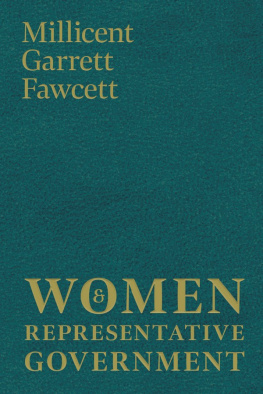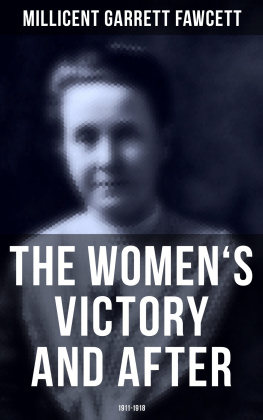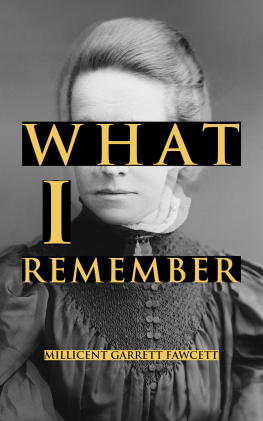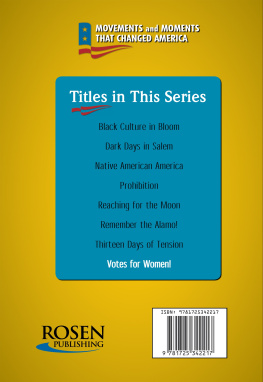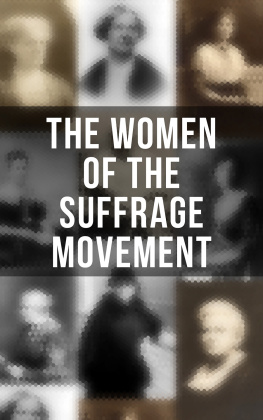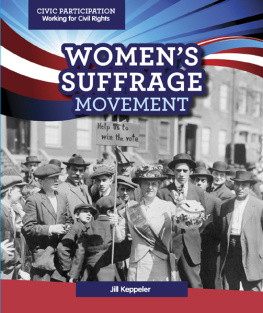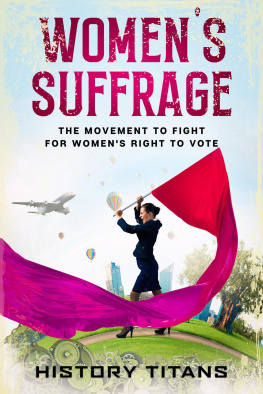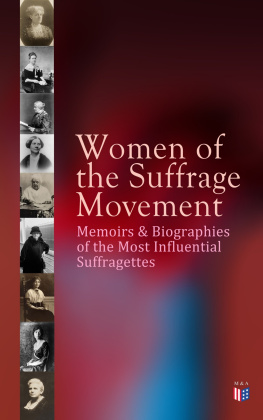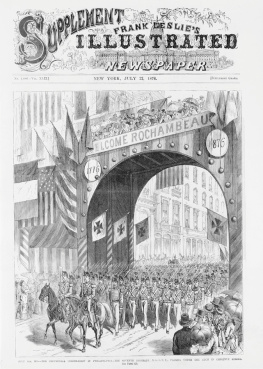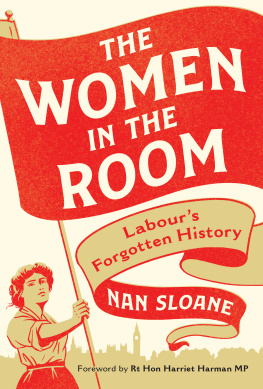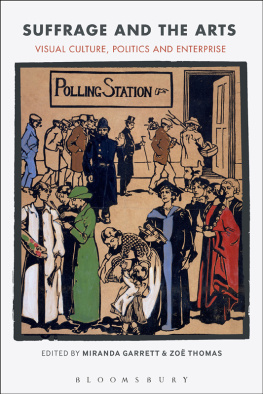Millicent
Garrett Fawcett
British writer and political worker. She was born at Aldeburgh, Suffolk, June 11 1847, the seventh child of Mr. Newson Garrett.
In 1867 she married the economist Henry Fawcett, subsequently Postmaster-General, and during her husband's life was closely associated with him in all his work, his blindness making him in many ways extremely dependent upon her.
She herself produced various works on economics, including Political Economy forBeginners (1870), Tales in Political Economy (1875), and, with her husband, a volume of Essays and Lectures (1872).
Mrs. Fawcett had for many years been interested in the higher education of women and in their economic and political future, and was one of the early workers for women's suffrage, becoming more prominent in the cause after her husband's death (1884). By about 1870 various small societies had grown up with the purpose of advancing the cause of women's suffrage, and in 1896 these were amalgamated under the name of the National Union of Women's Suffrage Societies, Mrs. Fawcett in 1907 becoming the president of this movement.
The body was for some years the only important suffrage society, and most of the pioneers of the movement belonged to it; but in 1906 the Women's Social and Political Union was formed, pledged to work by militant, as opposed to constitutional methods. Mrs. Fawcett was strongly opposed to the tactics of the militant suffragists, and expressly dissociated the N.U.W.S.S. from any sympathy with such methods. The constitutional methods adopted by the body of which she was president included an alliance formed with the Labour party (1912) by which the society agreed to support Labour candidates in preference to Liberal when the latter proved unsatisfactory on the suffrage question.
Mrs. Fawcett in 1912 produced her work Women's Suffrage, and her other books include Livesof Queen Victoria (1895) and Sir William Molesworth (1901), and FiveFamous French Women (1906).
Mrs. Fawcett's only child, Miss Philippa Garrett Fawcett, had a distinguished career at Newnham College, Cambridge, where in 1890 she was bracketed equal to senior wrangler. She became in 1905 principal assistant in the Education Officer's department of the L.C.C.
A Biography from
1922 Encyclopdia Britannica
WOMEN AND
REPRESENTATIVE
GOVERNMENT
Those who have been labouring in behalf of the removal of the electoral disabilities of women, feel that a very critical time in the history of the agitation is now approaching. The question of parliamentary reform, and a further extension of the principle of household suffrage, will probably occupy the attention of the House of Commons during a great part of next session. The old familiar arguments that taxation without representation is tyranny, that those who are subject to the law and fulfil the obligations of citizenship cannot be justly excluded from all share of making the laws, will be heard again and again; and it will moreover be urged that it is alike unjust and inexpedient to place the stigma of political subjection upon whole classes of loyal, peaceable and industrious citizens, by making the qualifications for the franchise such as they cannot fulfil. On one side of the House it will be urged that property ought to be represented; on the other side of the House the words of Mr. Chamberlain at the Cobden Club dinner will be repeated, that 'full confidence in the people is the only sure foundation on which the government of this country can rest.' And what the advocates of a real representation of the people want to make sure of, is to remind the orators who make use of these telling phrases, that the human race consists of women as well as of men. They wish to remind the Radicals and Liberals, who have done so much to get rid of political disabilities, that the disability of sex is as repugnant to true Liberalism as are the disabilities of race and religion. They want to remind the Tory party that if a fair representation of property is what they are aiming at, they will be acting very inconsistently if they support a system which gives no kind of representation to property, however vast, which happens to be owned by a woman.
It is sometimes said by those who do not deny the justice of women's claim to representation, that it is necessary to show what practical good will be done to women and to the community at large by giving women votes. The answer is not far to seek. Exactly the same good that is done to other people by self-government and representative government, as opposed to government by an autocracy or an oligarchy. One overwhelming advantage which results from representative government is that it teaches people to take care of themselves; it teaches them that faults in their system of government are due, not to the tyranny of those who are set over them, but to their own lassitude and want of zeal in correcting those faults. What better remedy than this can exist against revolution? And what a miserable waste of noble qualities results from the opposite systemthe system of repression and autocracy. It is not necessary to look further than to the contemporary history of Russia for examples. We see there courage, compassion, fidelity, devotion, ingenuity, and patience, turned aside from channels in which they might have made the whole world a better place to live in, into channels which lead to conspiracy, murder, and insatiable longings for revenge. These are the fruits of tyranny when tyranny is carried to extremes. It is the aim of representative government to avoid these social cankers; and it is the aim of those who favour the representation of women to make representative government in our own country as complete as possible by including all citizens, men and women, who fulfil the legal qualifications, and who have not forfeited their political liberty by crime or pauperism.
It is not necessary here to dwell at any length on the painful subject of laws that are unjust to women. No one who has ever given even a few minutes' attention to the subject will deny that there are many laws which, to use Mr. Gladstone's expression, give to women 'something less than justice.' [1] If it is necessary to quote examples, the inequality which the law has created between men and women in divorce suits furnishes one. The cruel law which gives a mother no legal guardianship over her children is another. I think there can be little doubt that if similar hardships had affected any represented class, they would long ago have been swept away. As it is, however, though the injustice of these and other laws affecting women is fully and almost universally recognised, year after year rolls by and nothing is done to remedy them. Here are matters almost universally admitted to involve injustice and wrong, and no one tries to remedy them. Why is this? It is because the motive power is wanting. Representation is the motive power for the redress of legislative grievances. If not what is the use of representation? People would be as well off without it as with it. But all our history shows the practical value of representation. Before the working classes were represented, trades-unions were illegal associations, and consequently an absconding treasurer of one of these societies was liable to no legal punishment. Not one man in a thousand attempted to justify such an iniquity, even when it was an established institution. It was a recognised injustice; but it was not till the working classes were on the eve of obtaining a just share of representation that the motive power for the redress of that injustice was forthcoming. The same thing can be said with regard to those laws which press unjustly on women. Hardly anyone defends them; it is not so much the sense of justice in parliament or in the country that is wanting, as the motive power which representation, and representation alone, in a self-governed country can give, to get a recognised wrong righted. Another illustration of the value of representation may be found in looking back at recent discussions on alterations in the land laws of England and Ireland. This legislation has been discussed, month in and month out, in the House of Commons and on every platform in the United Kingdom, as if the interests of two classes and two classes only had to be considered, those of the farmers and the landowners. The labourers have been apparently as much forgotten as if the land were ploughed and weeded and sown by fairies, and not by men and women, who stand at least as much in need of any good that law-making can do them, as the other classes who are directly interested in the soil.

